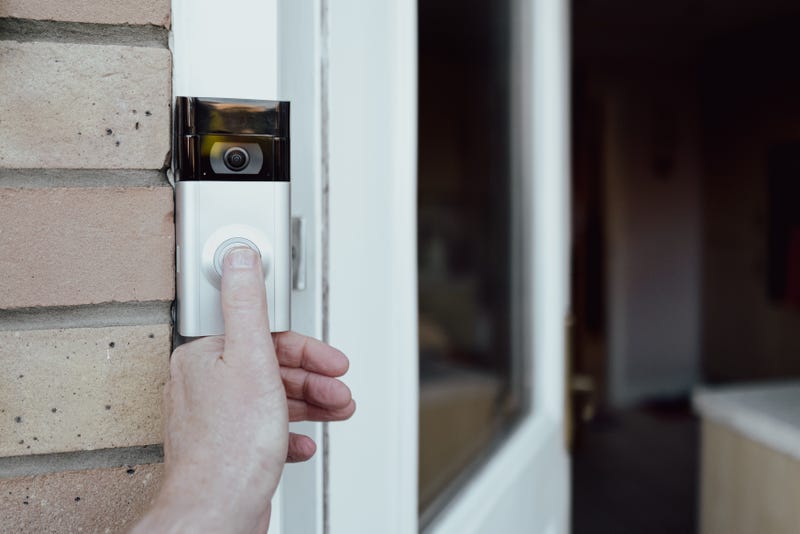
Buffalo, N.Y. (WBEN/AP) - Ring, the Amazon-owned doorbell company, will stop allowing police departments to request doorbell camera footage from users.
According to a blog post from Ring, the company has ended its "Request for Assistance" tool, which allows police departments and other public safety agencies to request and receive video captured by the doorbell cameras through Ring’s Neighbors app.
The company, however, did not provide a reason for the change, which which has been in effect since last week.
Buffalo Police commissioner Joseph Gramaglia believes this is an unfortunate change from Ring, feeling it just creates an additional, unnecessary hoop for law enforcement officials to have to jump through.
"I'm not real happy with the decision," said Gramaglia in an interview with WBEN. "I've talked to my colleagues across the country who are equally disappointed, major city chiefs across the country put out a statement. The tough part with this is it's just another thing that makes it more difficult for police to do their job to protect our communities. We're protecting our communities from violent crime, from property crime. I mean, you look at porch pirates, the holiday season, that's a major topic all the time."
However, Gramaglia and other local law enforcement officials do say this change will not preclude officials from still obtaining video from Ring that can help with investigations.
"We'll still be able to go out to the area where crime has occurred and go to our residents. We'll just have to go door-to-door and inquire if anyone has any video that they'd be willing to share with the police," said Cheektowaga Police Cpt. Jeffrey Schmidt in an interview with WBEN. "Being able to do that, through their system, was always a force multiplier, because it let you hit a large area very quickly. It will require a little bit of extra legwork, but we're still going to be able to do the same thing."
When it comes to the extra legwork for police to obtain video from doorbell cameras, officials say it may depend on the type of investigation they're conducting in order to acquire the needed evidence.
"We find that most businesses, most private persons, if we have a crime that occurred in their area and we asked them, 'Do you have any video footage? Would you be willing to share it?' Ordinarily, if someone's uninvolved, they'll turn over whatever they have to you to further the investigation," Cpt. Schmidt said. "It's only we find we need a subpoena or a warrant when someone who's involved in a crime, then at that point, we have to go through those legal process in order to get something."
One thing that Commissioner Gramaglia feels it's important for everybody to understand is it's not that law enforcement has the ability to look in and get people's video just willingly.
"On that Neighbor app, people are volunteering their information, they're volunteering to put video up there just as police would volunteer or request volunteers to provide video they have out there," Gramaglia explained. "A lot of times we're using subpoenas just, I think, for more protection sake, if you will, in the court process so that we don't have any issues. But anything in technology that we do in policing to help us make the process smoother, reach more people in a quicker way - as opposed to having to go door-to-door to go look for video - when you have a lot easier ways of getting things done - again, that word 'efficiency' - when that's taken away from you, that just adds time and distance to our investigations."
When it comes to the significance of Ring doorbell camera footage being utilized for investigations, both Gramaglia and Schmidt agree what it provides can be invaluable in their findings.
"One of the initial things we do in policing is look for video, canvass for video," Gramaglia said. "Cameras are everywhere. Right from our officers wearing body cameras, but you've also got cell phones, you've got surveillance, you've got Ring doorbell, which really got its start under the advertising of a 'Neighborhood Watch', community kind of a thing. But having the ability to have that video, and then have the people to support what's on that video is absolutely tremendous. You're allowing the police, you're allowing prosecutors and ultimately potentially a jury to show what happened, as opposed to just having the ability to describe what happened. And equally important, that video can certainly exonerate people from an allegation of a crime as well."
While Ring has said not to ask them directly for video, police certainly will not turn away any assistance, and will continue to ask for the public's help in any way with any investigation.
"They're just really turning off a requesting mechanism that's offered through their service. It doesn't stop us or prohibit us from reaching out to our community," Schmidt said. "We could do a news conference and say, 'Hey, we've had a crime that occurred at this location. We're looking for any type of video,' and they can still submit the video through a different channel."
"We will continue to ask people to provide us with information, provide us with video. That's always going to be a part of what we do," Gramaglia added. "We're going to go out, we're going to search it out, go through the legwork of looking for Ring doorbell cameras, surveillance cameras, you name it, we're going to look for it. But putting out that messaging, as well; Please check your cameras when an incident occurred last night or the day before, we're going to ask people to look on their cameras and submit that. We will still remain steadfast and looking for people to come forward with video."

